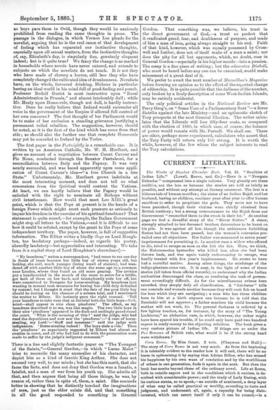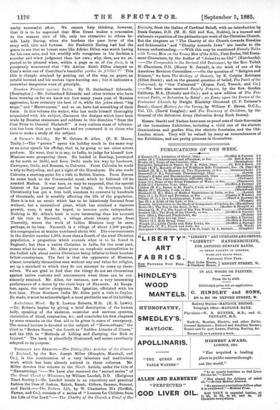Cara Roma. By Miss Grant. 2 vols. (Chapman and Hall.)—
The story of Cara Rome is not very much. As from the beginning it is tolerably evident to the reader how it will end, there will be no harm in epitomising it by saying that Adrian Dillon, who has missed his happiness by his own want of resolution and by the worldliness of others in one generation, finds it again in the next. But then the book has merits beyond those of the ordinary novel. Life at Rome, both in outside aspect and in the conditions which it excites, is de- scribed with considerable power ; and the study of Lady Daring, with its curious strata, so to speak,—an outside of sentiment, a deep layer of what may be called practical or worldly, according to taste and judgment, and underneath all, again, a capacity for being disk- terested, which can assert itself if only it can be roused,—is a
really successful effort. We cannot help thinking, however, that it is to be regretted that Miss Grant makes a concession to the meaner view of life, only too attractive to others be- side Lady Daring, when she burdens the poor lover of the story with title and fortune. Sir Frederick Daring had had the grace to see that an honest man like Adrian Dillon was worth having for his own sake, and his worldly wife recognises in his decision a sounder and wiser judgment than her own; why, then, are we ex- pected to be pleased when, within a page or so of the finis, it is pompously announced that "Sir Adrian Keith Dillon clasped on Cara's wrist one of Castellani's beautiful gardes de filaitot ?" This title is cheaply attained by putting out of the way, on paper, an invalid baronet and his useless tiger-hunting son ; but it indicates a somewhat dangerous want of principle.



































 Previous page
Previous page